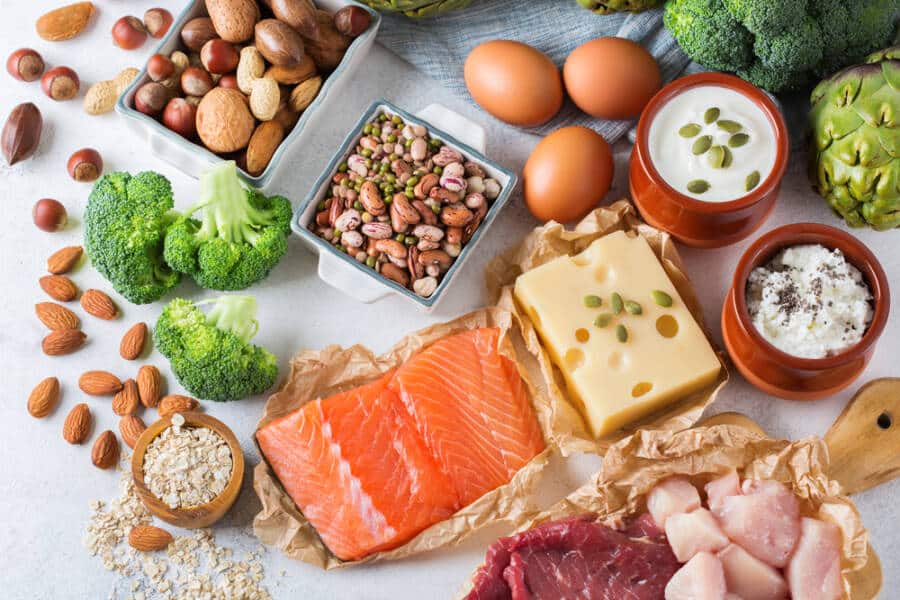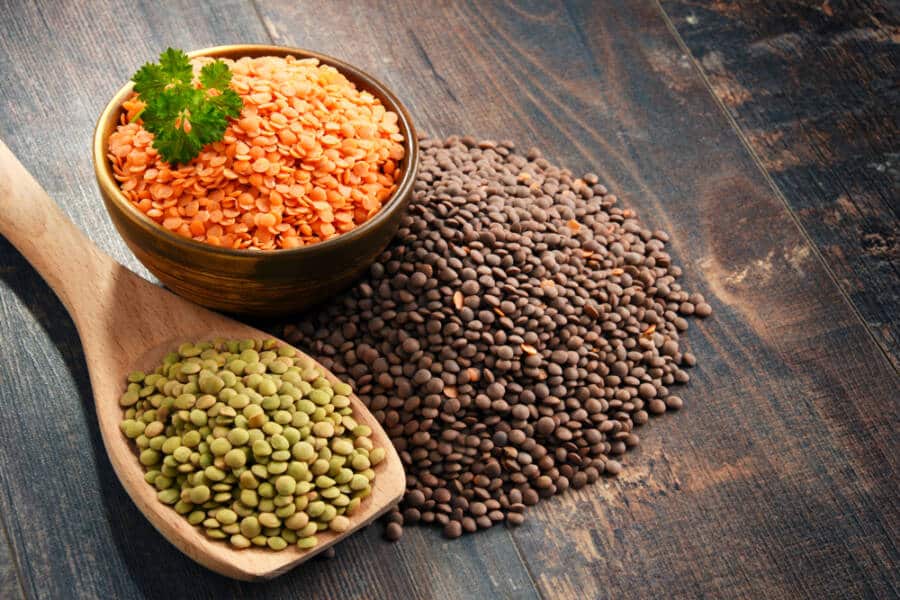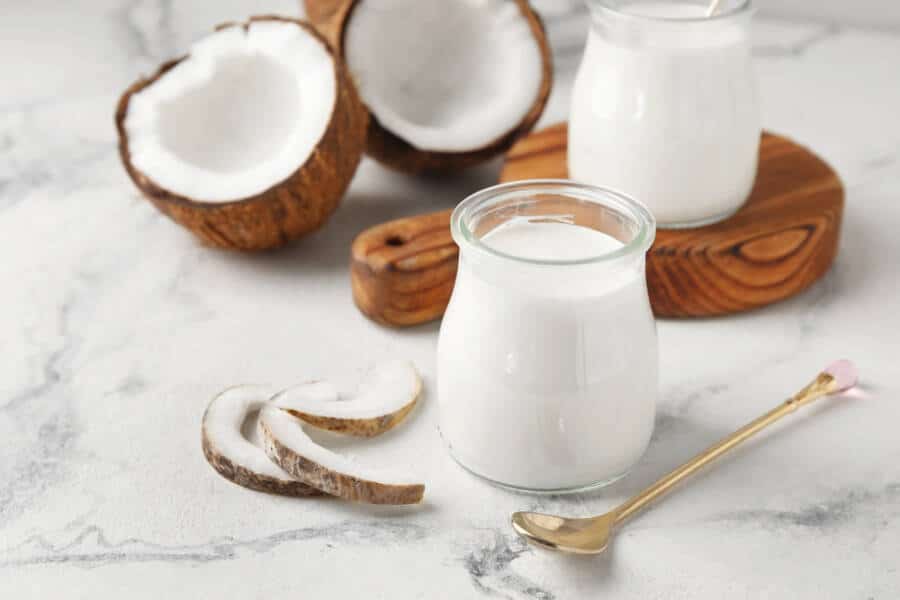Did you know not all proteins are good for your health?
Protein is one of the most important nutrients that the human body needs. Without them, the human body would be in a sorry state, as protein is both in charge of building and maintaining muscle and also vital in the creation of enzymes and hormones.
Protein is needed at the cellular level and also in the physical aspect of how we look.
The good news is that most people can end up getting their daily approximate amount of protein, with studies showing that an average adult consumes about 90 grams of protein a day!
The bad news is that not all proteins are made equally, and some proteins could end up detrimental to your health on other sides since they can end up increasing your cholesterol levels.
The main example is meat that is high in saturated fat; while meat is a good source of protein, the fatty ones can harm your heart health!
Eating too much protein can also leave you with too little space for eating other nutrient-rich foods!
If you are ready to see if your choice of protein is among the best ones out there, make sure you keep reading, as we will unveil the best and worst protein sources in today’s article!
What is your favorite protein source? Let us know your answer in the comments below!
3 Best sources of protein!

Eggs
If you need to get healthy proteins into your diet, do not skip out on eggs! Eggs are a huge source of nutrients, and they have a pretty good protein content.
A large chicken egg contains 6 grams of protein, which makes it one of the most affordable sources of protein while also being healthy, versatile, and convenient.
Recent studies also show that egg protein is one of the most digestible since the amino acids that are found in eggs are assimilated faster for the body to eat. This makes the protein you get from eggs the easiest one to absorb among all the meat, dairy, and plant-based options out there!
What’s more, studies have shown that eggs are filling, and they help decrease appetite, support immune functions, and regulate blood pressure!
One thing to be careful of is not missing out on the yolk like many people end up doing. Most nutrients are stored inside the yolk, along with minerals and vitamins.
Not to mention, the yolk contains 40% of the protein found in eggs and also the vitamins K, D, E, A, and B12!
Greek Yogurt
When it comes to Greek yogurt, a lot of us just presume it is a creamier, thicker version of normal yogurt, but it is way more than just that. That creamy, thick texture is an indication that this type of dairy product is way higher in protein than regular yogurt.
Greek yogurt is made by straining normal yogurt of its excess liquid, which makes it thicker and way richer in protein, effectively doubling its protein content.
Greek yogurt, which is unsweetened and made with whole milk, contains 8.78 grams of protein for each 100 grams of product, which is more than double the plain whole yogurt, which is 3.82 grams per 100 grams of product.
What makes this product such a stellar one, besides the high protein intake, is that studies have shown it to be beneficial for your health in many ways.
It is packed with vitamin D and calcium, which ensures that your muscles and nerves function properly, along with maintaining their immune system health!
Just make sure you do not fall into the trap of getting Greek yogurt that has a ton of added sugar; read the nutrition label and go for the plain version, then add your fruit or other tasty additions.
Another type of yogurt product that is similar to the Greek one is Icelandic yogurt (named Skyr)!

Lentils
If you are looking to diversify your protein intake and you do not want to rely only on the likes of dairy and meat, then you can always count on the plant-based options as well.
Not only that, but lentils are also high in fiber, so you are getting a great combo that is tasty, high in protein and fiber, and it will help you stay full for longer.
Lentils are also versatile, and they can be used in a myriad of dishes, from stews to curries and even soups, just to name a few. The USDA remarks that there are 9 grams of protein and 7.9 grams of fiber in 100 grams of cooked lentils, so it is easy to get all the amount you need from them!
What’s more, lentils are known to be one of the best foods and the overall healthiest food you can add to your diet! So if you haven’t yet, make sure you give them a try soon. Believe us, they are delicious!
If you are looking to start adding more lentils to your diet but can only think of curries, we go for it! This recipe book contains a lot of lentil-based dishes, and it is affordable on Amazon!
3 Worst sources of protein!
Red meat
Yes, you read that right! Red meat, while being one of those with a high amount of protein per 100 grams (with lean sirloin sitting at somewhere around 29 grams of protein per 100 grams of meat), also has some notable downsides.
Doctors mention red meat’s environmental impact, the high chances of animal cruelty, and how it can also lead to unpredictable and unhealthy reactions in humans.
A high intake of red meat (even if you stay away from processed red meats) has been linked by studies and researchers to high risks of heart disease, along with type 2 diabetes!
This led doctors to conclude that while red meat is good for you in small quantities, the less, the better!

Plant-based yogurt
If you eat plant-based, you may have assumed that some plant-based yogurts will do the trick and replace the normal and Greek ones, but unfortunately, they are highly wasted.
Not only does it not score that high when it comes to protein content per 100 grams (just 3.33 grams in the case of Kite Hill’s plain almond milk yogurt), but it also has more thickening agents and starches for it to have the consistency we are used to in yogurt.
And when you look at coconut yogurt, the protein content is worse, with 0.31 grams per 100 grams of yogurt!
Even if you end up finding one that meets your protein intake requirement, researchers warn against choosing this type of plant-based yogurt to the detriment of the plain Greek one.
Hard salami
You may have seen hard salami or salami sticks used as a snack after doing sports and also advertised as a good source of protein.
After all, it is made from red meat, and it generally has a high protein content. The sad news is that this is one of the high-protein foods you should be avoiding!
Due to how highly processed it is, hard salami also has a high content of fat and sodium. Not to mention saturated fats and a high amount of calories.
While they may not be that bad on paper, the amount of sodium and fat can increase your likelihood of developing heart disease!
This does not mean that you cannot enjoy it on a charcuterie board or in a sandwich from time to time, but it should remain a treat rather than a permanent fixture in your diet!
The good news is that both protein and carbs are good and needed for our bodies and that there are good sources of protein and carbs out there, no matter how much certain diets try to demonize them! You’ve just got to be careful how you eat so you do not end up with digestive issues. For easy carb consumption, check out the healthiest types you can eat here!








1 thought on “Proteins Ranked! 6 Best and Worst Proteins for Your Diet”
I am 92 years old and have never eaten meat. I was vegetarian until I became aware of the cruelty behind eggs and dairy and stepped up to Veganism in my adulthood. I have always had great skin and thick healthy hair which are prime indicators of sufficient and high grade protein, an added bonus is the lack of wrinkles I have in spite of advanced age and gravity. Aside from legumes and whole grains which I limit, there is a wide variety of seeds and nuts that are high in protein and easily incorporated into any recipe.